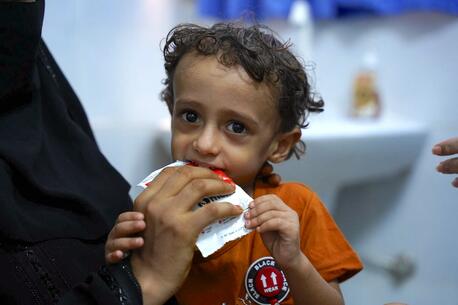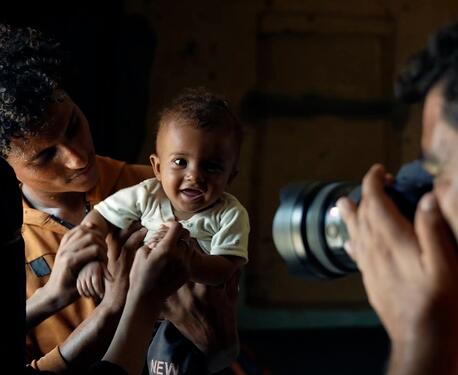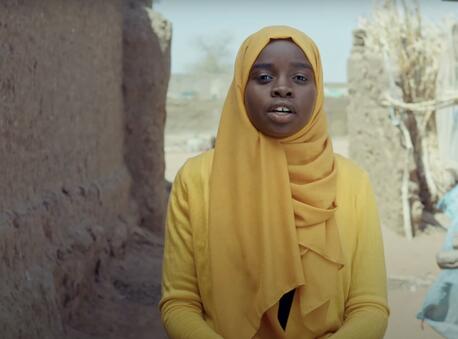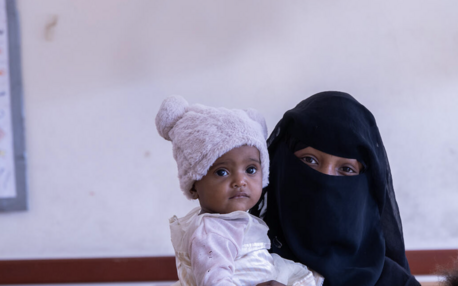
Helping Out-of-School Children Learn in Yemen
Nine years of conflict, economic collapse and a failed social and education system have taken a heavy toll on Yemen's children. UNICEF-supported education programs help children like 16-year-old Yousra — married at 12 and a mother at 13 — realize their dream of getting an education.
Yousra was a little girl when her father died, leaving her and her brother to fend for themselves. After their home in Taizz, Yemen, was bombed, the children fled. Eventually, overwhelmed by financial struggle, her brother arranged for Yousra to marry a teenager named Omar.
She was 12.
Now 16 with daughters of her own, Yousra has always regretted not having the opportunity to go to school. "I studied until the fifth grade," Yousra said. "But I couldn't read or write and I didn't continue. I felt bad."
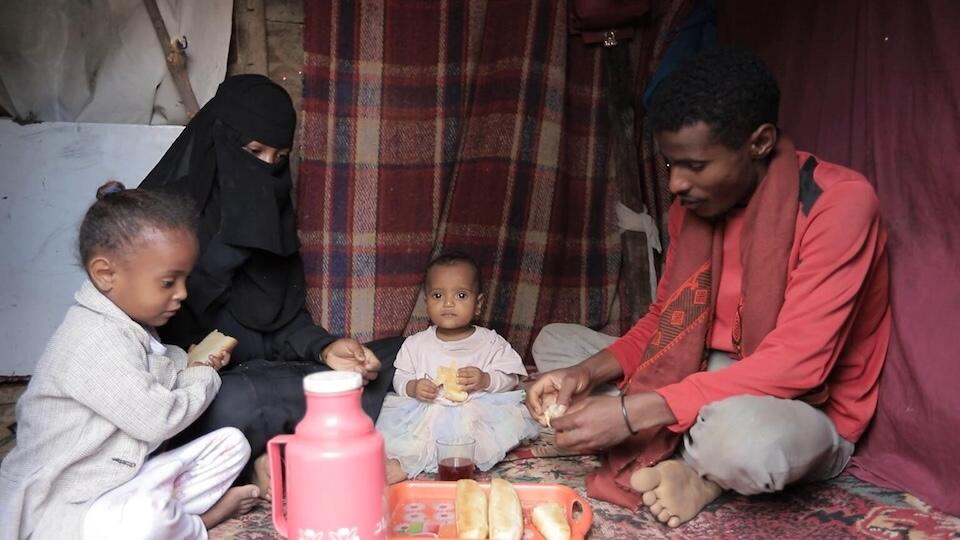
Recently, Yousra started attending free literacy and numeracy classes provided by UNICEF with support from the European Union. The classes offer catch-up instruction in reading, writing and basic calculation for children who cannot afford formal education or who have dropped out. They're part of a series of curriculums required to take an assessment to return to regular schooling when possible.
Most of Yousra's fellow learners live in a camp for the internally displaced and belong to an ethnic minority group called Muhamasheen, or the marginalized, who often face social discrimination. Many of the children coming to the school usually support their families by collecting and selling plastic bottles or doing odd jobs.
To date, UNICEF has helped 40,000 children access basic literacy and numeracy classes as well as accelerated learning programs in Taizz, Marib, Al Hudaydah, Hajjah and Ibb.
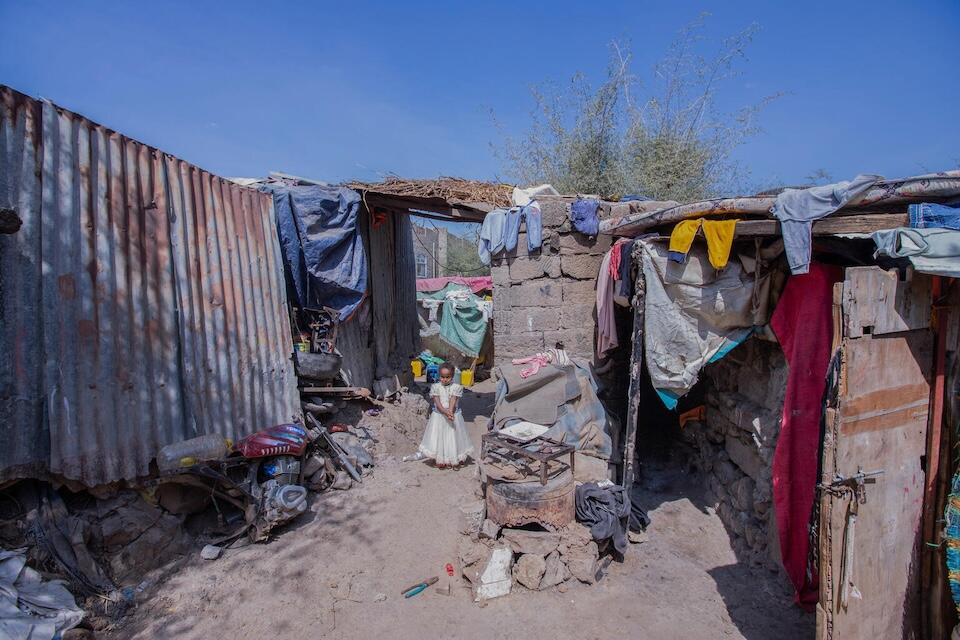
The needs are great. One out of four school-age children in Yemen are out of school. Those who are enrolled face overcrowded classrooms and poorly equipped education facilities. Over 80 percent of children in grades 2 and 3 are not proficient; more than 70 percent lack basic numeracy skills.
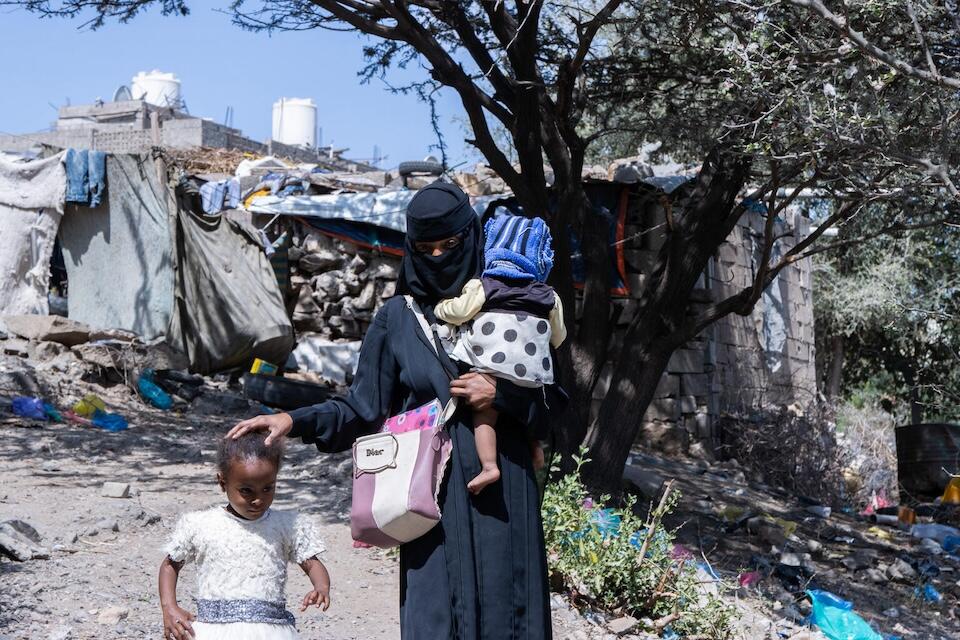
"The prospect for Yemen and their future is catastrophic," said UNICEF Representative in Yemen Peter Hawkins. "We need to get these children back into school. We need to give them quality learning outcomes and we need to help them be able to aspire towards the future for themselves."
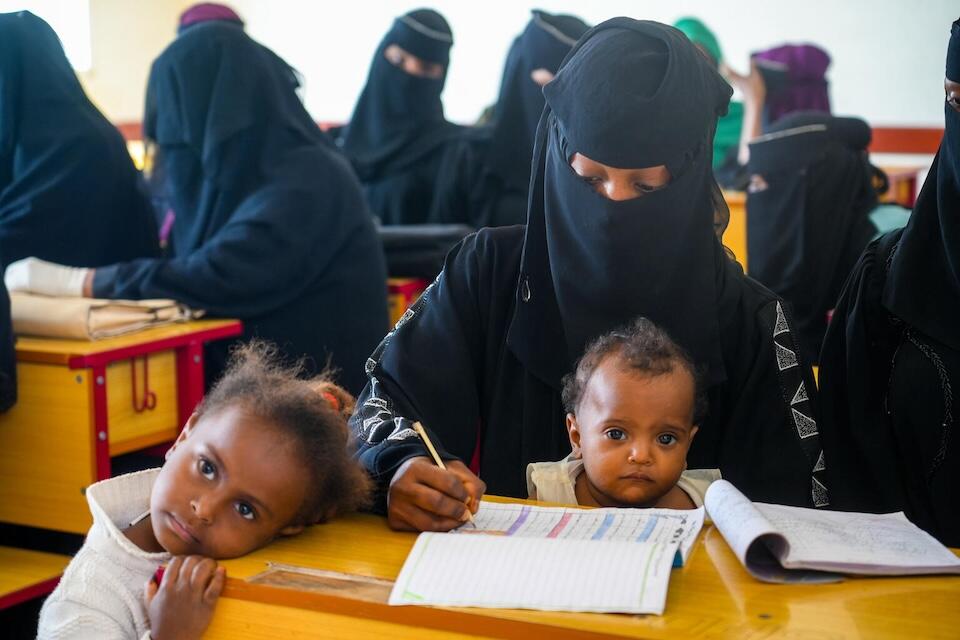
More than 2,400 schools have been damaged, destroyed or occupied and used for other purposes. The country faces a chronic teacher shortage; more than 190,000 teachers in Yemen have not received a regular salary since 2016.
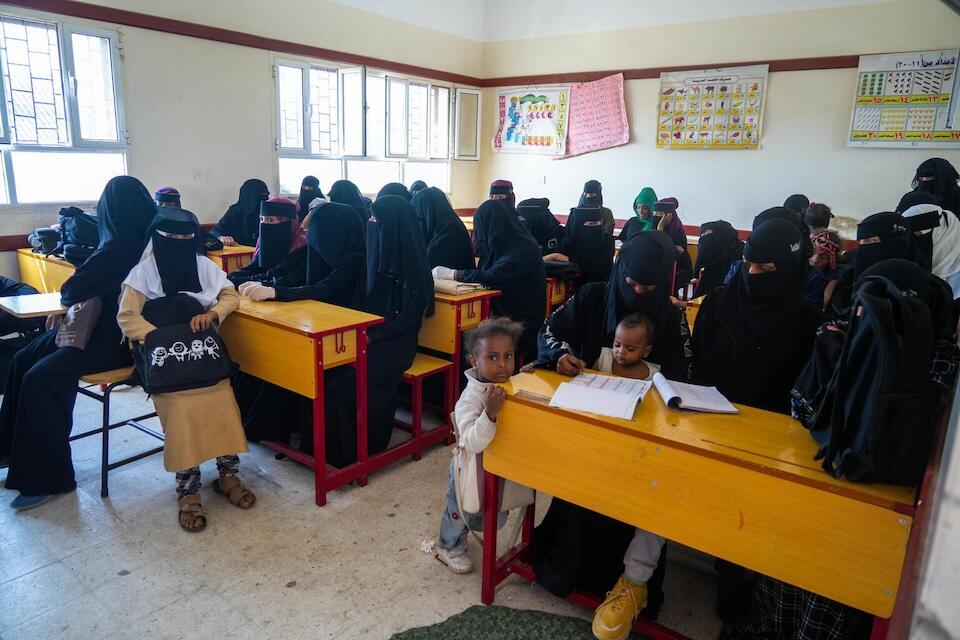
In 2023, UNICEF helped more than 223,000 children — 48 percent of whom are girls — gain access to quality formal or nonformal basic education, including early learning and support for the national exam. For the 2023-2024 school year, UNICEF distributed school bags and school supply kits to more than 900,000 students across 22 governorates, and provided more than 3,300 recreation kits benefitting an estimated 199,980 children.
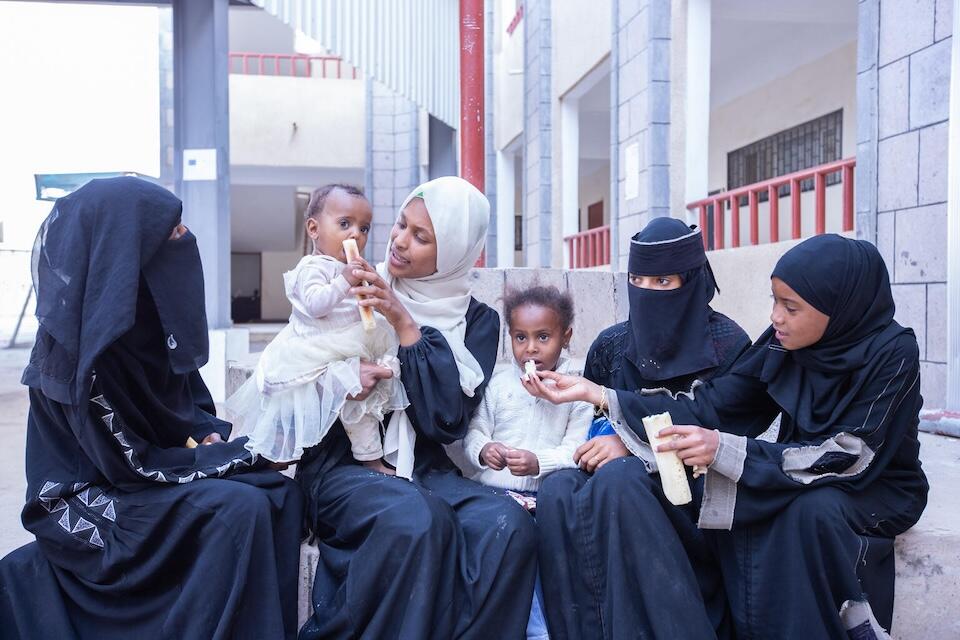
UNICEF Yemen also:
- rehabilitates damaged school buildings
- provides cash payments to keep teachers in the classroom
- trains teachers to improve the quality of education
- improves access to safe water in schools
- works with partners to deliver psychosocial support to help children heal from the trauma they've endured during nine years of war
- supports out-of-school children to obtain their birth certificate, a crucial step to protect them and help them return to formal education
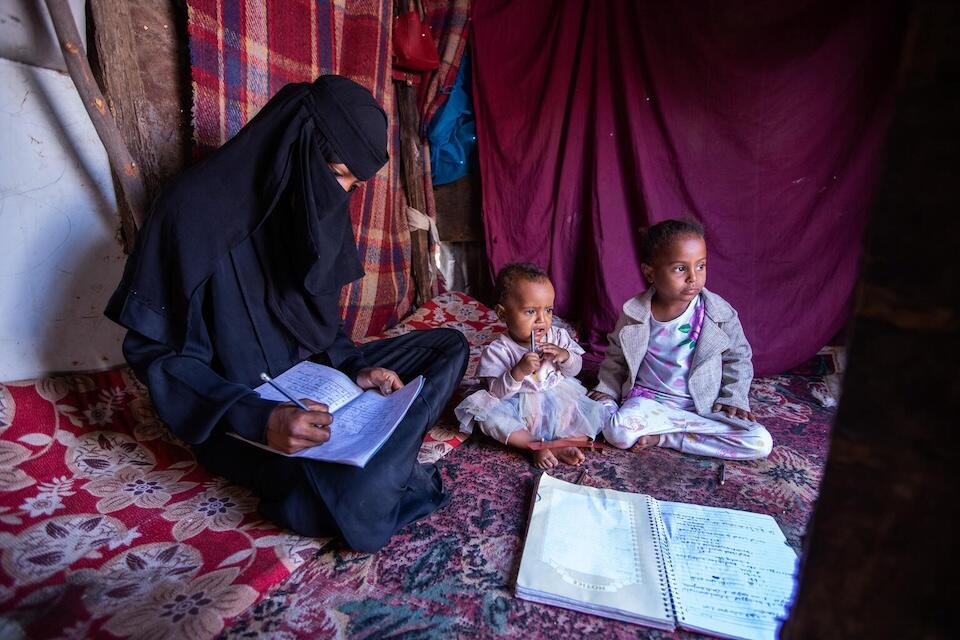
Access to education can have a profound impact on a child's life and future — and the future of their country. At first, said Yousra's teacher, Majida Ahmed, "I felt that some of the students were dead inside, as if they had been taken out of a grave. But now they are living again."
On the first day of class, Majida asked students what they wanted to be when they graduated. Students who initially saw no prospects for themselves took the question as an insult. She kept insisting that education could open the door to better outcomes. Now students' attitudes have started to change. "When I graduate from school, I want to become a doctor’s assistant or a henna artist,” said Yousra.
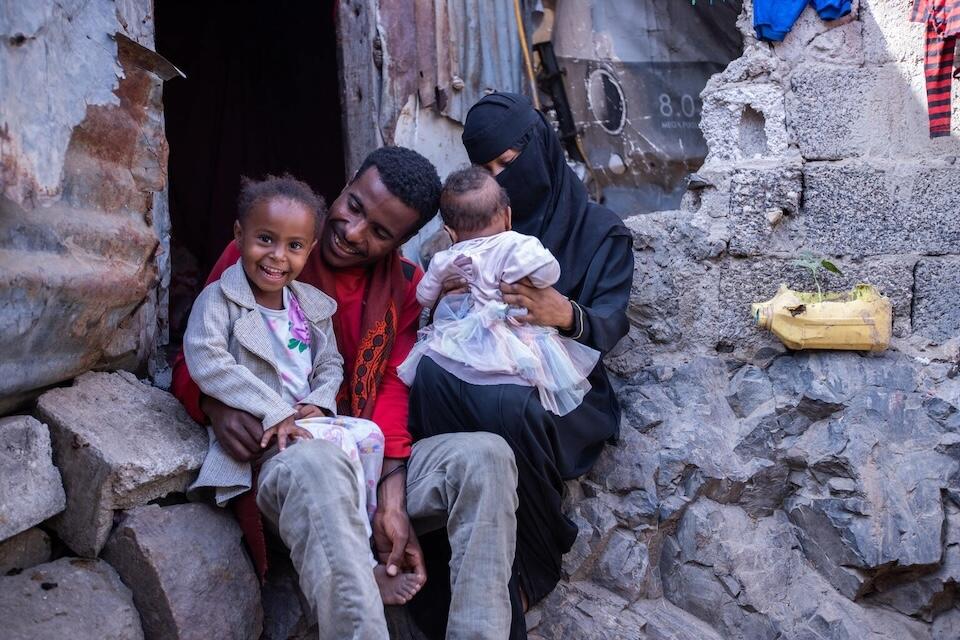
Being back in the classroom has given Yousra new hope not only for herself, but also for her children. "I want to study so that no one can insult my daughters because I don't have a stable income to give them a good life," she says. "I want my daughters to be well-educated and I don't want them to go through what I went through."
Your support can help UNICEF reach children growing up in conflict zones with the support and services they need to reach their full potential. Please donate.
HOW TO HELP
There are many ways to make a difference
War, famine, poverty, natural disasters — threats to the world's children keep coming. But UNICEF won't stop working to keep children healthy and safe.
UNICEF works in over 190 countries and territories — more places than any other children's organization. UNICEF has the world's largest humanitarian warehouse and, when disaster strikes, can get supplies almost anywhere within 72 hours. Constantly innovating, always advocating for a better world for children, UNICEF works to ensure that every child can grow up healthy, educated, protected and respected.
Would you like to help give all children the opportunity to reach their full potential? There are many ways to get involved.



